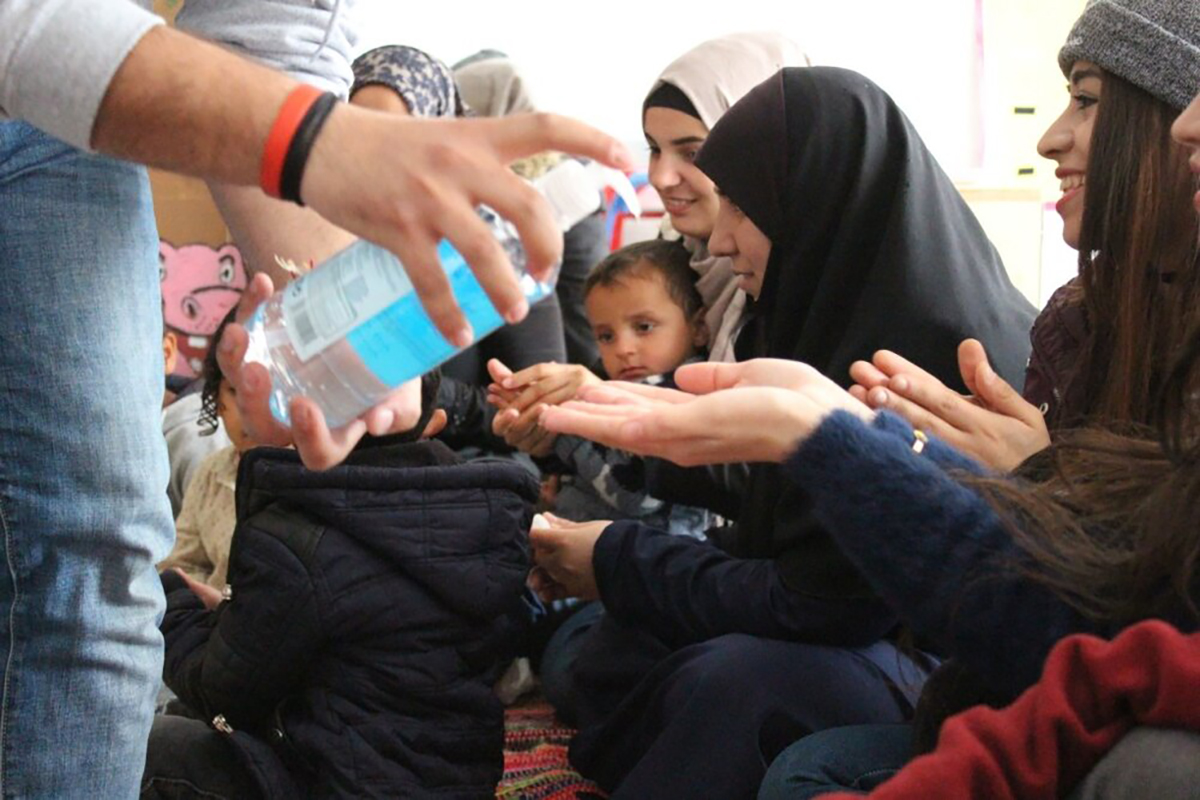
Community and COVID-19
14 أبريل 20
Four years ago, in a tent at the Idomeni refugee camp, Refugee Trauma Initiative launched operations amid a crisis of solidarity. This month, we reached our fourth anniversary.
We struggle, amid the COVID-19 pandemic, to commemorate this milestone. We find it hard to celebrate amid exponential transmission and global economic shock.
It feels more appropriate to reflect on how RTI’s foundational values offer relevant insights for managing today’s pandemic. Community and connection, crucial to overcoming the toxic stress of conflict and displacement, are just as important to protecting vulnerable families from the worst effects of COVID-19.
COVID-19 has shaken humanity to its core, laying bare our common vulnerability to common threats. But COVID-19 is not a leveler. As you read these words, breadwinners around the world are having to make terrible choices: do I risk my health to provide for my family, or stay at home and forgo crucial income? In urban slums and refugee camps, where sanitation and medical care are limited, communities can only brace for the worst.
RTI was formed amid a crisis of solidarity. Four years ago, when refugees from Syria, Afghanistan, Iraq, and myriad other countries tried for Europe by the thousand, RTI came together around the idea that, to overcome the trauma of displacement, families need to form community. Only by connecting to one another, and to their host communities, could displaced families form nurturing relationships, settle, heal, and begin to integrate.
Connection empowers vulnerable families: it helps them form community and find both sources of help and outlets to share their talents and skills. We empower displaced families by helping them build these empowering connections. This builds their resilience and helps them to overcome challenges on a strong footing: healing from traumatic experiences, learning a new language, or navigating bureaucracy to access public services. Community, and the nurturing relationships it creates, are key to healing.
Community is just as important when trying to protect oneself or one’s family from the threat of COVID-19. Examples of this abound, but perhaps our favorite is the Colorado family who trained their dog to assist their infirm neighbor by collecting her grocery lists from her doorstep, and then delivering the groceries they pick up for her, allowing her to avoid leaving her home.
As COVID-19 spreads, we need to reflect, collectively, on what kind of society we want to become as we overcome the pandemic. For four years, RTI has advocated for inclusive, family-focused, mental health-centered, and community-building values in every aspect of humanitarian and development programming. We believe that, in a world where families come first and where leaders focus on empowering communities, a pandemic would cause less damage. We believe that, if we all knew that our lives and livelihoods were being protected, a pandemic would cause less distress. We believe in a world where, amid a crisis like the Covid-19 pandemic, each individual is treated based on their needs rather than their privilege. We believe in the power of community to transform insecurity into empowerment.
We had hoped to mark our fourth anniversary with joy and celebration. Instead we mark it with this sober reflection on the road we still need to travel, from the world we inhabit today to the world we would like to inhabit in another four years.
As we embark on another year or programming, we invite you to join us in this journey. To help us mainstream community-based, family-centered, mental health-focused values into every dimension of humanitarian aid. To help us build resilience outward, from the individual to the family to the community, by placing mental health at the center of all service provision. Working together, we can build a society that is more resilient against every harm of inequality, and not just COVID-19.

